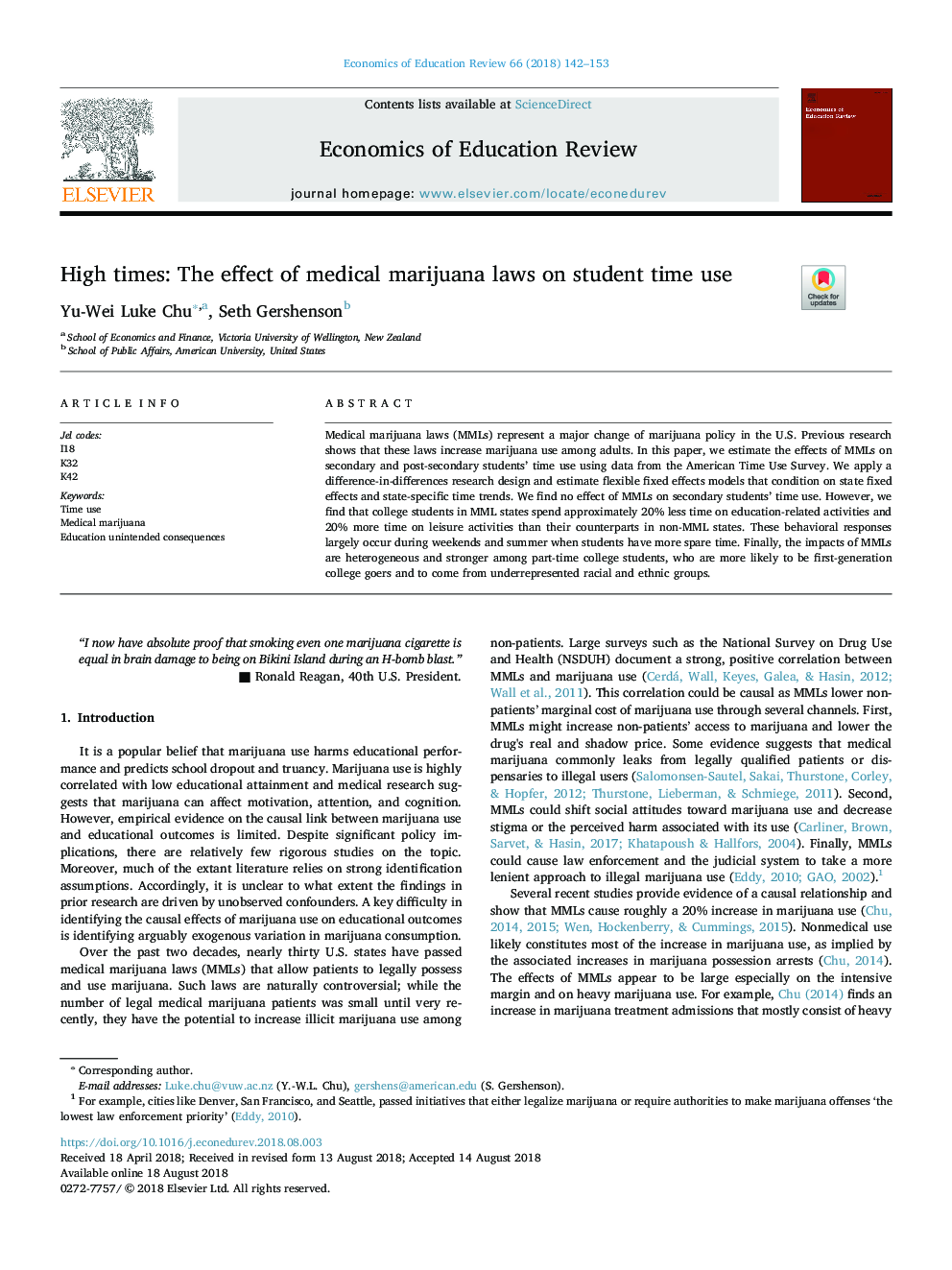| Article ID | Journal | Published Year | Pages | File Type |
|---|---|---|---|---|
| 9951965 | Economics of Education Review | 2018 | 12 Pages |
Abstract
Medical marijuana laws (MMLs) represent a major change of marijuana policy in the U.S. Previous research shows that these laws increase marijuana use among adults. In this paper, we estimate the effects of MMLs on secondary and post-secondary students' time use using data from the American Time Use Survey. We apply a difference-in-differences research design and estimate flexible fixed effects models that condition on state fixed effects and state-specific time trends. We find no effect of MMLs on secondary students' time use. However, we find that college students in MML states spend approximately 20% less time on education-related activities and 20% more time on leisure activities than their counterparts in non-MML states. These behavioral responses largely occur during weekends and summer when students have more spare time. Finally, the impacts of MMLs are heterogeneous and stronger among part-time college students, who are more likely to be first-generation college goers and to come from underrepresented racial and ethnic groups.
Keywords
Related Topics
Social Sciences and Humanities
Economics, Econometrics and Finance
Economics and Econometrics
Authors
Yu-Wei Luke Chu, Seth Gershenson,
